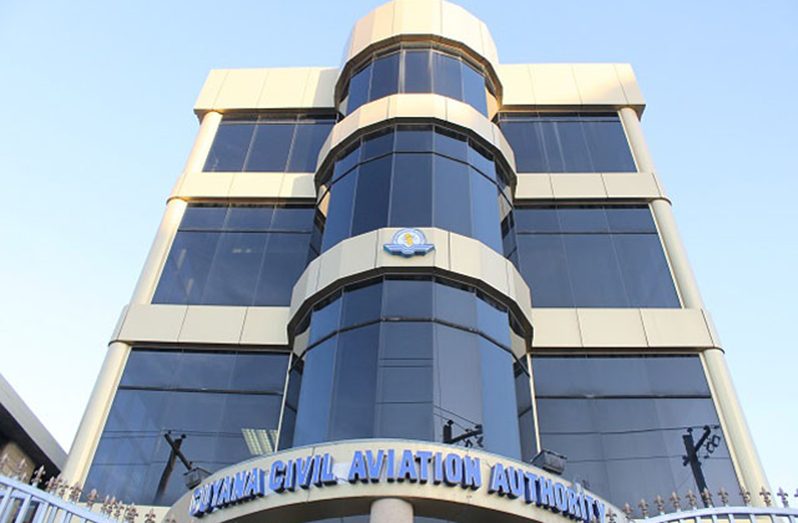-as key documents not provided for audit
THE Audit Office of Guyana has been unable to properly audit the financial statements of the Guyana Civil Aviation Authority (GCAA) for the year ending December 31, 2016. This, according to Auditor General (AG), Deodat Sharma, is largely owing to the agency’s failure to provide key documents for verification, including its bank statements and assets register.
“I was not provided with bank reconciliation statements nor bank statements to determine the accuracy of amounts totalling $21,383,894 and included in cash and cash equivalents of $1,177,459,501,” the AG outlined in his report to the members of the GCAA’s Board of Directors.
Sharma, in his submission dated March 25, 2019, also highlighted the challenges faced by auditors in authenticating the assets owned by the GCAA.
“I was not provided with a fixed assets register to support property, plant and equipment with a carrying amount of $1,447,459,276,” Sharma indicated.
He said that as a consequence, the contracted auditors from Ram and McRae Chartered Accountants were “unable to carry out relevant audit procedure over this account balance and related depreciation charges of $90,656,256.”
Further, the auditor noted that he was not provided with supporting documents for acquisition of assets totalling $420,626,768. “It was more impractical to extend my procedures sufficiently to determine the extent to which the financial statements may have been affected by these conditions,” the AG noted.
Additionally, the report indicated that the aviation authority was unable to bill customers of reportedly $6,843,420, due to lack of billing information. “This amount is not shown as revenue or as an expense in the financial statements,” the auditor said.
He highlighted too that the “aged receivable listing provided showed a balance of $736,190,745 or $97,768,551 more than the amount shown in the financial statements.”
In expressing his required opinion on the findings, Sharma concluded that the GCAA did not maintain adequate accounting records and supporting documents, nor was the system of internal control adequate to safeguard assets and assure proper recording of transactions.
“Accordingly, it was impractical to extend my procedures sufficiently to determine the extent to which the financial statements may have been affected by these conditions,” the AG noted.
A look at the GCAA’s audited financial statements for 2015 found similar issues where the agency failed to provide key documents, such as its bank statements and assets register, for audit.
Contacted by this newspaper on Saturday, AG Sharma indicated that aside from the audited financial statements, the Audit Office would issue a “management letter” to the Board of Directors of the agency, outlining recommendations for remedies.
He explained that the letter would have made specific recommendations for the unsettled accounts to be reconciled, and for measures to be put in place to ensure the smooth execution of the mandatory audits.
The Auditor General reminded that the investigations in preparation of the financial statements were done in accordance the International Standards of Supreme Institutions ISSAIs and the Audit Act 2004.
He also emphasised the importance of the government agency ensuring and maintaining adequate and accurate financial information. “Misstatements can arise from fraud or error and are considered material if, individually or in the aggregate, they could reasonably be expected to influence the economic decisions of users taken on the basis of these financial statements,” Sharma noted in the report.
As it relates to financial risk management, the report clearly outlined the fact that the GCAA’s activities expose it to a variety of financial risks, including the effects of changes in interest rates and credit risk, which refers to the risk that occurs when one party to a financial instrument fails to discharge an obligation that cause the other party to incur a financial loss.
The report specified that the financial statements were approved by the GCAA’s Board of Directors on February 5, 2019, and later released to the media on Thursday last, during the 28th sitting of the National Assembly.



.jpg)









